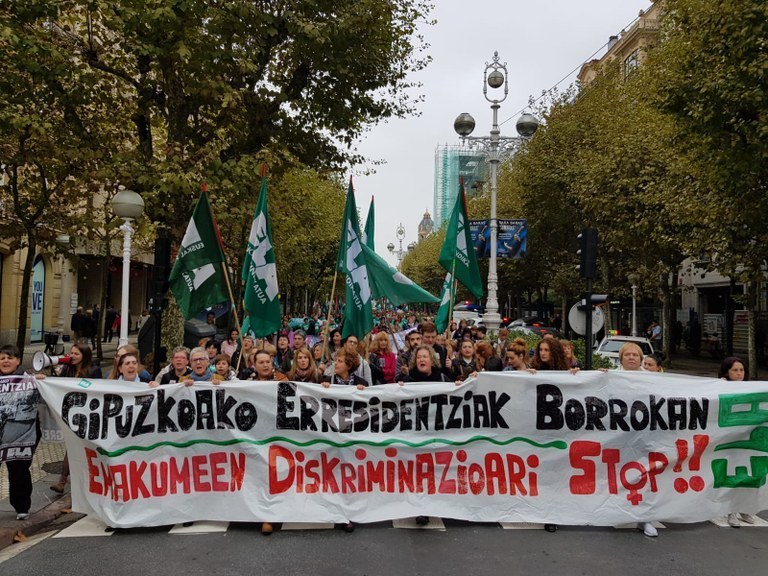The salary gap, a pandemic evil

Through the sexual division of work, the jobs considered as “masculine” and “feminine” are defined, with the latter being undervalued. The result is that the annual salary gap in Hego Euskal Herria is over 7,500 euros, which means a salary gap of over 24%.
We need effective policies and initiatives against the salary gap, once and for all. Steps that remain only in at the formal level or in superficial solutions. In spite of the fact that in recent years, legislative changes are occurring on the subject (RLD 6/2019, 901/2020 and 902/2020, for example), companies and public administrations continue to generate the salary gap. Frequently, it is even difficult to apply the law completely, with the steps and formal mechanisms being used to whitewash gender-related subjects on too many occasions. As a first step, the laws and regulations against the salary gap must be imposed, in private companies, of course, but also in the public administrations. In fact, those who public equality laws and regulations often reproduce these inequalities internally.
We are at a time where the privatisation of public services is being promoted and many of the services that the public administration outsources are feminised and insecure. Examples of this are the care homes for the elderly, cleaning services or school dining rooms, amongst others. The public administration, which should be used as an example, has been turned into cause of the salary gap, whilst the people responsible for this type of policy spout endless words about equality and feminism.
From the ELA trade union, we are facing the salary gap on a daily basis through the feminist collective bargaining. Conflicts are being generated regarding the salary gap in different work centres and sectors and we have already has several triumphs. Recently, for example, the salary gap that existed amongst the cleaners of the municipal premises of Zarautz compared to the street cleaners (masculinised sector) has been eliminated. Prior to this, we have had other similar experiences: in 2019 the cleaners outsourced by the City Council of Elorrio obtained a wage increase of 20.76% after 5 months on strike; the same year, the cleaners of the courts and police stations of Guipuzcoa managed to reduce the gap by 70% with respect to street cleaners after 280 days on strike, without forgetting the group of cleaners outsourced by the UPV and the Department of Education, which under the slogan: ‘The same work, the same salary!’ took to the streets denouncing the 13% salary gap from which they were suffering.
At the ELA trade union we will continue to be on the front line in the fight against the salary gap, promoting strikes and mobilisations to organise the workers in the different work sectors and centres, with the aim of bringing an end to the salary gap. At the same time, we will continue demanding the public institutions to effectively exercise their responsibilities and obligations, so that they change from being accomplices to this injustice to implanting and carrying out steps against the salary gap. We will insist until the institutions carry out real feminist policies; and ultimately, until an end is brought to the salary gap.
